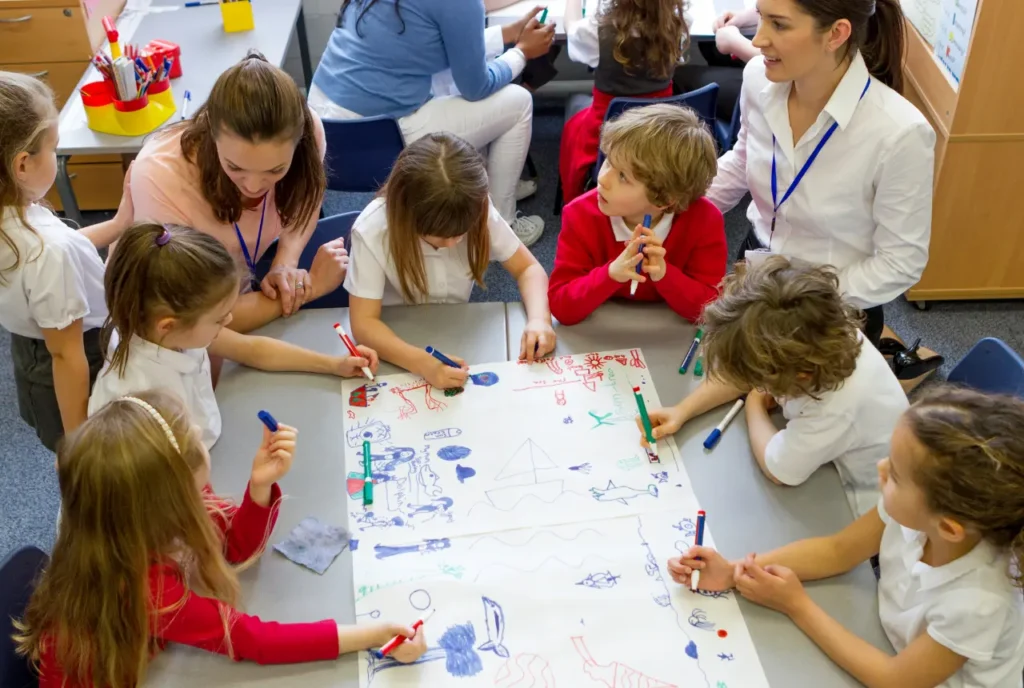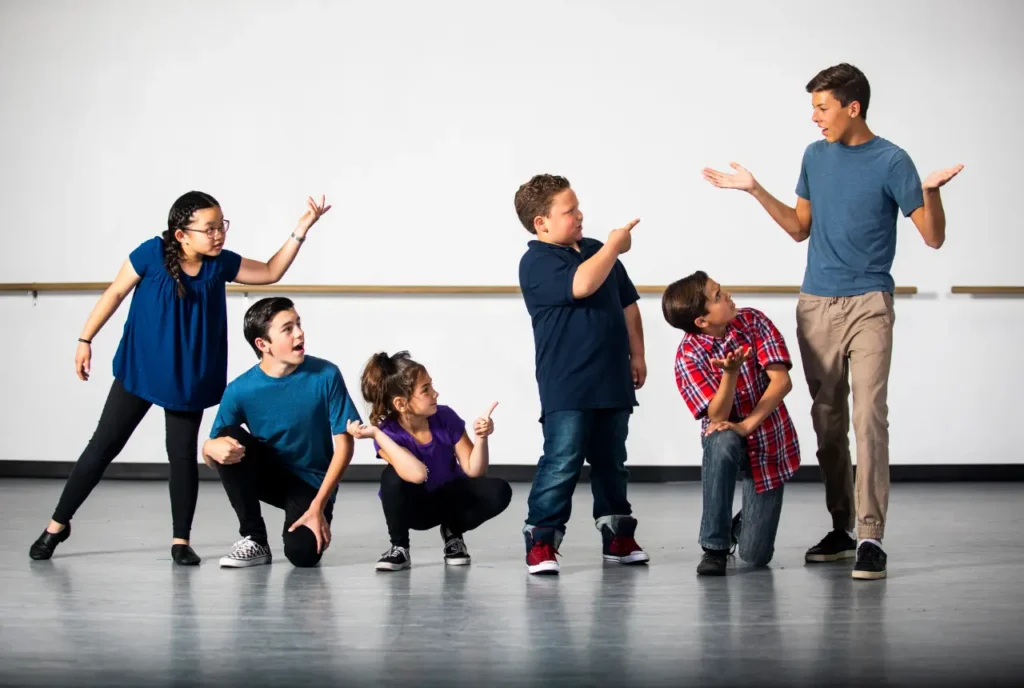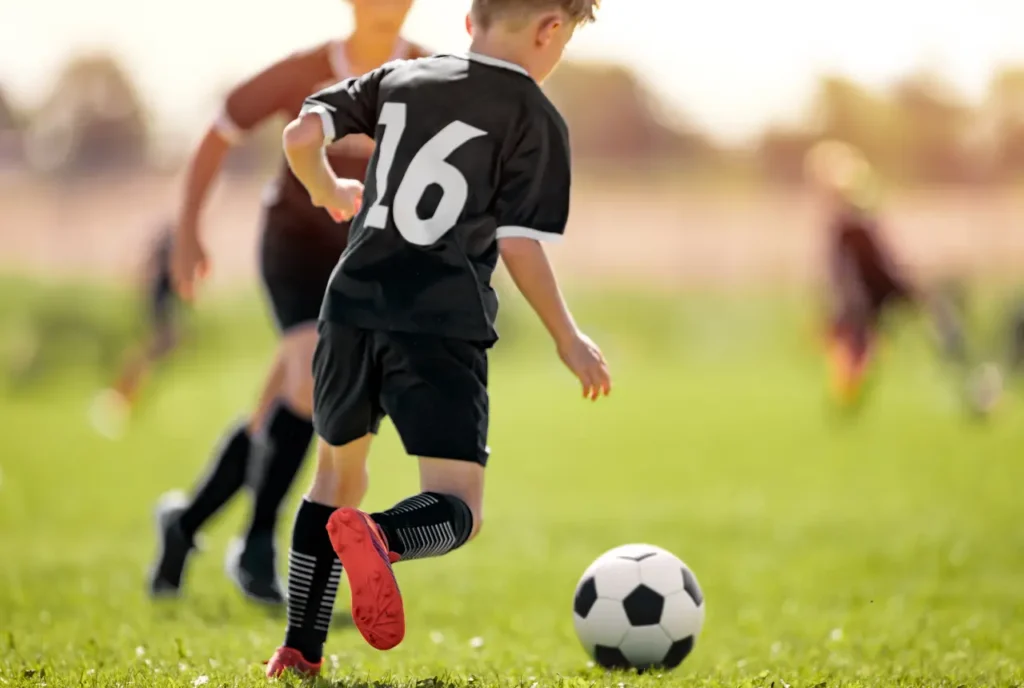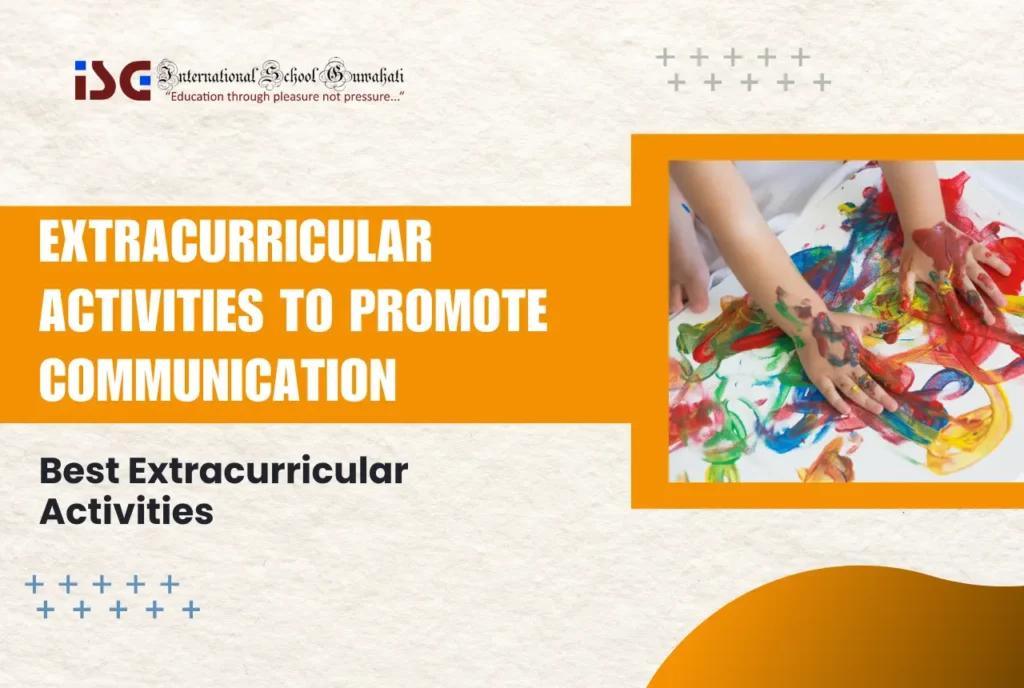How can extracurricular activities improve communication skills?
Extracurricular activities to promote communication provide a fun and effective way to enhance this essential skill. Whether you’re part of a sports team, drama club, or debate group, these activities encourage teamwork, clear expression of ideas, and active listening.
By practicing communication in real-life settings, you not only improve your ability to communicate but also build confidence and creativity. This helps you connect better with others and succeed both personally and professionally.
Why Extracurricular Activities Are Essential for Developing Communication Skills

- Real-Life Activity: Co-curricular activities are an excellent way through which students can express their thoughts clearly on a number of different platforms and thus improve their communication skills.
- Group Dynamics: Team sports and group projects require good teamwork so that students learn the necessity of verbal communication as well as non-verbal cues like body language.
- Leader Development: Activities come to be with varied leadership roles that offer the students the opportunity to develop communication because it involves discussion, motivation of peer groups, and the end solving conflicts in operations.
- Active Listening: Active Listening Engaging the students in these activities will stir up their active listening, thus making them listen to other people’s perspectives and then make appropriate responses.
- Transferable Skills: Communication skills learned out of the classroom would transfer very well into a classroom, but surely to a workplace setting.
- Strategic Investment: Extracurricular activities are a strategic investment for the students to boost their ability to communicate effectively, thus setting them up for success in both academic life and later on in their careers.
7 Extracurricular Activities to Promote Communication
Extracurricular activities, as well as many others, enhance the quality of communication skills and encourage teamwork. Here are seven specific activities that improve these abilities in relation to their relevance toward developing effective communicators.
As one chooses an activity, choose something that promotes teamwork, public speaking, and the ability to think critically.
1. Debate Club

Joining a debate club is one of the most excellent ways to hone verbal skills, critical thinking, and structured communication. Debating allows bringing in a setting so that the individual articulates his argument clearly and persuasively while keeping ears open for opposing viewpoints. This process also enhances the skill of speaking but not only that, hearing and responding.
It is in the debate-making process that students build their logical arguments and clarify their respective positions based on facts; at the end of the debate, therefore, they are sharpening their analytical skills. Besides, they have to review other people’s opinions, learn to appreciate other people’s different opinions and enhance interpersonal communication.
For example, examples of topics on current events include climate change policies or social issues such as education reform. Such debates will help students improve their research skills and be able to voice their thoughts clearly; thus, debate clubs can be a very potent tool for imparting essential communication skills.
2. Drama and Theatre Groups

Many drama and theatre clubs help enhance oral and non-verbal communication skills. In acting, students can get to interpret how one can use body gestures, tone, and expression to communicate messages. This can be very essential in clarifying the emotions that a student is trying to pass through to the audience’s subconsciousness.
Drama also engulfs teamwork since a group of players must closely cooperate to produce coherent performances. Interaction with other actors elicits open communication, trust, and constructive input for more polished interpersonal skills. Overall, drama groups offer a dynamic environment for self-expression in creative ways while offering students the essential communication techniques valuable in everyday life interactions.
3. Public Speaking or Toastmasters Club

When a student enters in a public speaking or Toastmasters club it helps in clarity, confidence, and articulation. The clubs provide structured environments where skills for speech practicing may improve the ability to communicate ideas in an easier and more persuasive manner. Members learn effective techniques to communicate with audiences such as means of storytelling, varied tone, and effective pauses.
Overcoming stage fright is another concern that is addressed. The participants constantly practice and get constructive feedback and gradually overcome their fears in a supportive atmosphere. Some of the hints for handling anxiety include deep breathing exercises, positive visualization, and message versus need orientation. This would then enable confident communication in various contexts.
4. Team Sports (Soccer, Basketball, etc.)

Engagements in team sports improve non-verbal communication, coordination, and teamwork. During team sports, players use nonverbal cues, such as body gestures and eye contact, to coordinate their movements effectively, thus improving body language awareness.
Clear communication on and off the field is imperative, where players are required to call out plays and discuss strategies. This function enables them to articulate their thoughts clearly better.
It will also involve coping with the pressure situations that may come when playing so that it reduces and gives clear communication to help the players handle the composure of their teams and guide them in the games. This can be applicable in other areas of life, contributing immensely to dealing with stress.
5. Model United Nations (MUN)
Model United Nations enhances diplomatic communication and negotiation skills in the body involved. Student delegates engage in research-based communication that objectively improves public speaking and sharpens critical thinking as they articulate their country’s positions during debates.
MUN essentially fosters an understanding of the same; it helps to create or bring in collaboration and consensus-building between individuals of different levels, which is one of the essential qualities that leaders may need in the future. By participating in MUN, delegates learn how to effectively navigate complex geopolitical landscapes in preparing for realistic international diplomatic relations.
6. Student Government or Leadership Roles
Communication plays a very vital role in leadership roles. It enables succinct group discussions, proper conflict resolution, and effective decision-making. These students working in government offices improve their formal and informal communications and communicate clearly while listening actively. All this readies the student for various challenges of leadership and creates an ambiance of cooperation at every step.
7. School Newspaper or Blogging Club

How writing enhances clarity, persuasion, and structured communication.
Increased involvement of a student in a school newspaper or blogging club increases the ability of such a student to communicate coherently, persuasively, and with clarity. Writing articles helps them concisely, and effectively put down their ideas on paper, but working with editors and getting reader feedback defines their written communication skills.
It also helps to actually find an audience and then gauge the content. This activity also shares the teamwork aspect with it, for example, writers, editors, and photographers have to work hand-in-hand to come up with appealing writings. On the other hand, learning how to give and receive feedback equips a student with the ability to communicate clearly, logically, and persuasively.
How to Choose the Right Extracurricular Activity for Communication Development
Selection of the right extracurricular activity can help in developing communication skills entails the following:
- Personal Interests: Carry out activity preference as you would love to do the debate, drama, or writing.
- Communication Objectives: Mention exactly what skills you want to learn. For instance, public speaking, persuasive writing, or teamwork.
- Learning Style: Use your learning style – visual, auditory, or kinesthetic – to pick the activities that suit you best.
- Seek out mentors or coaches: They are people who could, at the right times, give you constructive and valuable feedback about your use of the art of communication.
Conclusion
Extracurricular activities will prepare students with communication skills to give themselves a platform to utilize real-life opportunities in speech or writing. A student who participates in debate clubs, drama, or student government besides honing their oral and written communication ability also learns teamwork, critical thinking, and leadership qualities.
We promote the interaction of students and professionals to have these activities as a part of their daily routine so that both personal and professional development will not just be complete but all-rounded. If a person is out of his comfort zone and exploring various extra-curricular options, he can do much better than his colleagues in communication skills.








